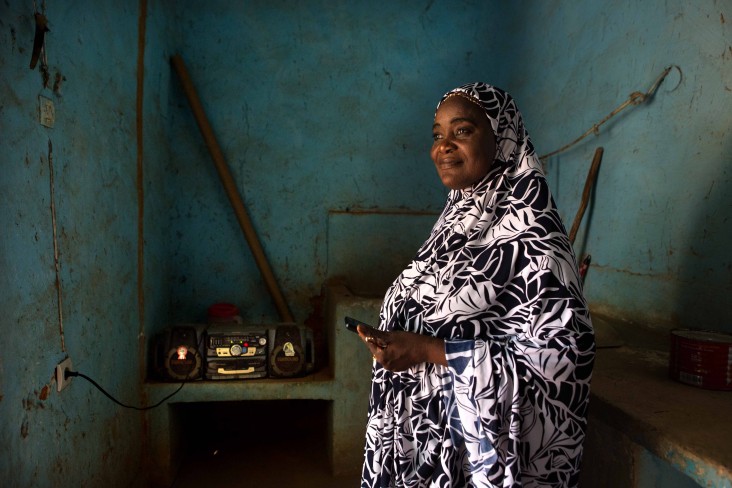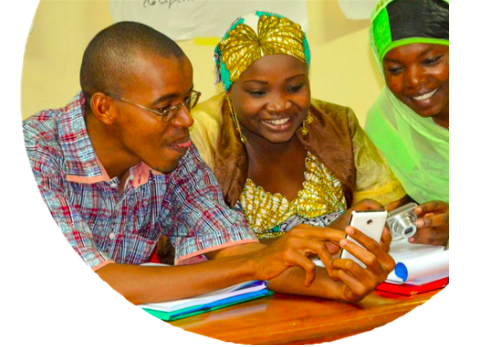Speeches Shim

Despite progress made in promoting economic growth, consolidating democratic norms, reducing the rates of HIV/AIDS, and protecting the environment, much of West Africa continues to suffer the devastating effects of conflict and democratic backsliding.
USAID/West Africa’s Democracy, Peace and Governance program supports regional and national capacity and commitment to open, accountable, and democratic governance through: (1) strengthening participatory, representative, and inclusive political processes and government institutions; (2) promoting greater accountability of institutional leaders to citizens and to the law; and (3) supporting partner countries’ pathways toward stability and peace. USAID also addresses the risks of instability from violent conflict, and prioritizes targeted conflict and violence prevention, peacebuilding, and preventing and countering violent extremism (P/CVE) interventions across the region.
USAID/West Africa works with regional institutions like the G5 Sahel to build African capacity to proactively preempt the spread of violent extremism (VE) in the region. It also targets change at national and local levels through research, training, partnerships, disseminating information, and other programmatic efforts. Additionally, USAID prioritizes an interagency approach and collaborates with the State Department and the Department of Defense to bring a whole of government approach to bear on this critical challenge. The mission also coordinates closely with other USAID P/CVE-relevant programming in the region, including USAID’s Office of Transition Initiatives (OTI) , which has ongoing cohesion and transition activities throughout the region.
Reacting to Early Warning and Response Data in West Africa (REWARD II)

REWARD II is a follow-on activity to REWARD, which was implemented from September 2015 – 2020. The principal objective of REWARD II is to bolster the capacity of the Economic Community of West African States (ECOWAS) to monitor, gather, analyze, and disseminate human security information to its 15 member states to support peace and security in the region. REWARD addresses critical gaps in the conflict early warning and early response systems of ECOWAS through a two-tier approach by: (1) providing capacity building to ECOWAS to enhance conflict early warning and response systems in the 15 ECOWAS member states; and (2) supporting national and local stakeholders in five countries to mitigate electoral conflict triggers before they escalate into violence.
REWARD II directly supports USAID/West Africa’s Regional Development Cooperation Strategy by strengthening systems of non-violent conflict management in the West African region and advancing the U.S. Government goal to support countries on the path to self-reliance.
These efforts allow USAID/West Africa to minimize the backsliding of democratic processes, such as effects related to conflict and stabilization, including but not limited to political violence, civil unrest, and the evolving security threats in the region. Through a combination of approaches the mission with its partners also are helping to address existing security vulnerabilities that have been aggravated by COVID-19 related limitations and restrictions.
COLLABORATING, LEARNING, AND ADAPTING ACTIVITIES

Peace through Evaluation, Learning and Adapting (PELA)
PELA acquires and utilizes the knowledge needed to inform USAID/West Africa decisions, strategies, and initiatives to more effectively counter violent extremism, build regional resiliencies, and promote peace across West Africa. Based in Accra, Ghana, PELA is strengthening USAID's effectiveness in implementing its projects, coordinating its activities, learning from experience, and serving as an information, communication, and thought leader regarding peace, promotion and preventing and countering violent extremism (P/CVE) in the West African Region.
PELA assists USAID/West Africa, surrounding operating units, and implementing partners by: 1) conducting and developing analytical research through desk and field studies that expands knowledge and understanding critical to strategy development and decision-making; 2) building knowledge through monitoring and evaluation; 3) developing and implementing a Learning Agenda to provide a baseline and framework for continuous learning, knowledge sharing, strategic collaboration, and adaptive management; 4) analyzing and sharing knowledge through collaboration and learning events, and 5) developing communications products that reach target audiences.
Presentations and final research reports can be found on the PELA Online Platform for Peace Promotion in West Africa. To register to access the site, contact Dr. Marie Pace (mpace@ibtci.com) with your request.
Strengthening Resilience to Extremism in West Africa – The Role of Traditional Authorities
This operational research activity took place in communities that are currently under threat of violent extremist organizations (VEOs) in the Ménaka and Gao region (Mali), in Tillabéri (Niger), and in the Sahel, East, and Center-North region (Burkina Faso), and strives to answer a central question:
Do traditional authorities contribute to or weaken resilience against radicalization towards violent extremism in VEO-affected areas, and if so, in what manner?
Research looked at factors that increase resilience against violent extremism: 1) cohesion and solidarity in societies that face violent extremism; 2) commitment to democracy and the rule of law; and 3) rejection of violence, divisive ideas and stereotypes. Findings help USAID and partners to develop mechanisms that can help communities address concerns peacefully without resorting to violence.
The complete report can be found in the Development Experience Clearinghouse website.
Interested to learn more on how traditional authorities play a vital role in keeping the peace among and between communities of different ethnicities and social standings in Mali, Niger and BurkinaFaso? The Clingendael Institute and the International Center for CounterTerrorism (ICCT) funded by USAID launched an interactive online dashboard of research findings. Data is derived from 1400 quantitative surveys and 600 qualitative interviews gathered from 30 municipalities in six regions: the Ménaka and Gao regions (Mali), the Tillabéri region (Niger), and the Sahel, Est, and Centre-Nord regions (Burkina Faso). See here: https://customarylegitimacy.
Measuring the Impact of Civic Values Training for Informal Educators on Students’ Vulnerability to Violent Extremism
This research tests the impact of exposure to civic values and constructive pedagogy on extremist attitudes among informal educators and their students in the Lake Chad Region (LCR). Building on the U.S. Embassy-funded program implemented by the Salam Institute for Peace and Justice, a series of workshops is organized to train informal educators in Chad and Cameroon. These educators learn to apply and teach civic values and critical thinking skills on social topics related to violent extremism, such as attitudes toward religious outgroups, peacebuilding, and the management of prejudices toward religious and ethnic outgroups. The International Center of Religion and Diplomacy (ICRD), along with a team of local and international research experts, are leading the evaluation of these trainings to determine how they affect both the educators (direct beneficiaries) and their students (secondary beneficiaries).
This impact assessment will identify whether and how attitudes among beneficiaries change, specifically along social, behavioral, and cognitive dimensions of tolerance/prejudice toward religious outgroups and support for non-violence. Critical thinking skills will also be assessed as a suspected mediating factor. Ultimately, this project will provide new evidence on how interventions in constructive pedagogy and civic values may affect community resistance to violent extremism.
Last updated: March 24, 2022

Comment
Make a general inquiry or suggest an improvement.